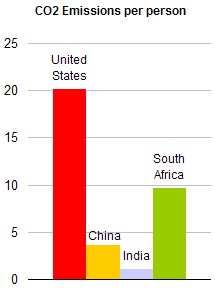Tiger Wheel & Tyre offers a tyre insurance that they heavily advertise (details here). I bought some tyres there recently and the salesman told me that it’s an excellent deal and that he “can’t understand how they are making a profit”. I know enough about insurance to be sure that they are making a tidy profit – but I still wondered if it would be worth it.
The short answer was: no it’s not worth it. Lets look at how I came to that conclusion in the shop.
First the details of the insurance policy:
- You must insure all 4 tyres. In my case that came to about R80 for R1,600 worth of tyres (after VAT).
- Insurance covers only the tread not used up. So if the tyre was 50% used up, then they pay 50% of the replacement cost.
- The insurance only covers 50,000km even if the tyres are still good after that.
- Obviously they only replace the damaged tyre even though you would almost always need to buy 2 new tyres.
So I ran some scenarios in my head.
Best case scenario
If I drove out of the shop and immediately lost a tyre then I would have paid R80 for insurance and it would have saved me R400 for replacing the tyre = R320 benefit. R400 (benefit) – R80 (cost) = R320 gained
However, what are the chances of that happening? If there is a 20% chance then I would only need the insurance once for every 5 purchases. So the benefit from insuring changes to R400 x 20% = R80!
So if I believe there is a 20% chance of needing the insurance immediately, then the insurance is still pointless! Any lower risk and purchasing the insurance is a waste of money. (I know that there is a chance of losing 2 or more tyres which changes things – still not worth it)
The insurance is only valid for 50,000km. I thought that the chances of losing a tyre in that time is about 5% not 20%. That means that I would definitely lose money if I took out the insurance.
R400 x 5% = R20 (maximum benefit) – R80 (cost) = a R60 loss!
Insurance in general
Remember, the insurance companies are making money. That means that on average the insurance is NOT worth it to us and they are taking the difference as profit. There are a few good reasons to take out insurance:
- If you think that you are more at risk that the average person.
- If you can’t afford to take the hit. I can’t afford to replace a car so I insure mine even though in the long run I know it will very probably cost me money. I take that cost because I can’t afford to take the risk.
In the case of tyre insurance, neither of the above reasons are relevant (I am less at risk than the average person and I can afford to replace a tyre) so I had a suspicion that the insurance would not be worth it. After doing some simple calculations I could see that it is a rip-off.
I can easily “understand how they are making a profit”.

 I have often heard that because of the manufacturing process and the batteries involved the
I have often heard that because of the manufacturing process and the batteries involved the 
 The Economist has some interesting articles on ANC leadership election happening this weekend (
The Economist has some interesting articles on ANC leadership election happening this weekend (
 I just heard that the great author
I just heard that the great author